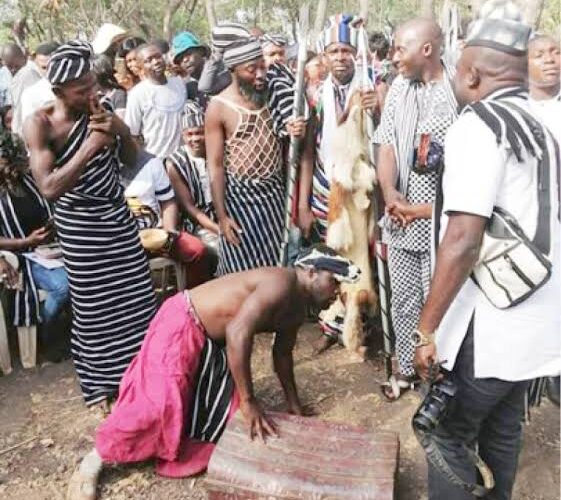With a population estimated at over 6 million, the Tiv are one of the largest ethnic groups in Nigeria, residing primarily in the country’s Middle Belt. Their native language, also called Tiv, is among the most widely spoken in the region.
The Tiv have a rich cultural history as one of the earliest settlers of the Benue Valley, having migrated and established homesteads based on farming and fishing hundreds of years ago. Known for their hospitality, they welcome visitors with colorful displays of food, music, and dance during celebrations.In terms of physical features, Tiv men and women typically have darker complexions and strong, muscular builds suited for agricultural labor.
Tiv women are renowned for their beauty and traditional hairstyles like “ange” which reveal their high foreheads. Their handwoven “iftyu” cloths with intricate designs are iconic throughout Nigeria. Socially, the Tiv organize themselves into compound families headed by the eldest male.
They are an industrious people, producing many of Nigeria’s food crops like yams, beans, and millet. But the expansion of farms and grazing lands has sometimes put the Tiv in conflict with neighbors like the Fulani herdsmen. While largely concentrating in Benue State, Tiv diaspora can be found in cities across Nigeria due to migration and intermarriage with other groups.

Yet at their core, the Tiv remain tied to their ancestral home at the Kwararafa kingdom, where elders uphold traditional governance and belief systems.In the modern era, the Tiv have faced numerous challenges like the pollution of farmlands due to oil extraction. But they continue demonstrating resilience and now boast increasing numbers of educated professionals who still identify strongly with Tiv cultural identity.From fashion to food to wrestling, the rich cultural heritage of the Tiv stands out as unique in Nigeria.
Their growing political organization aims to preserve this proud history while achieving greater development and cooperation in a diverse nation.


